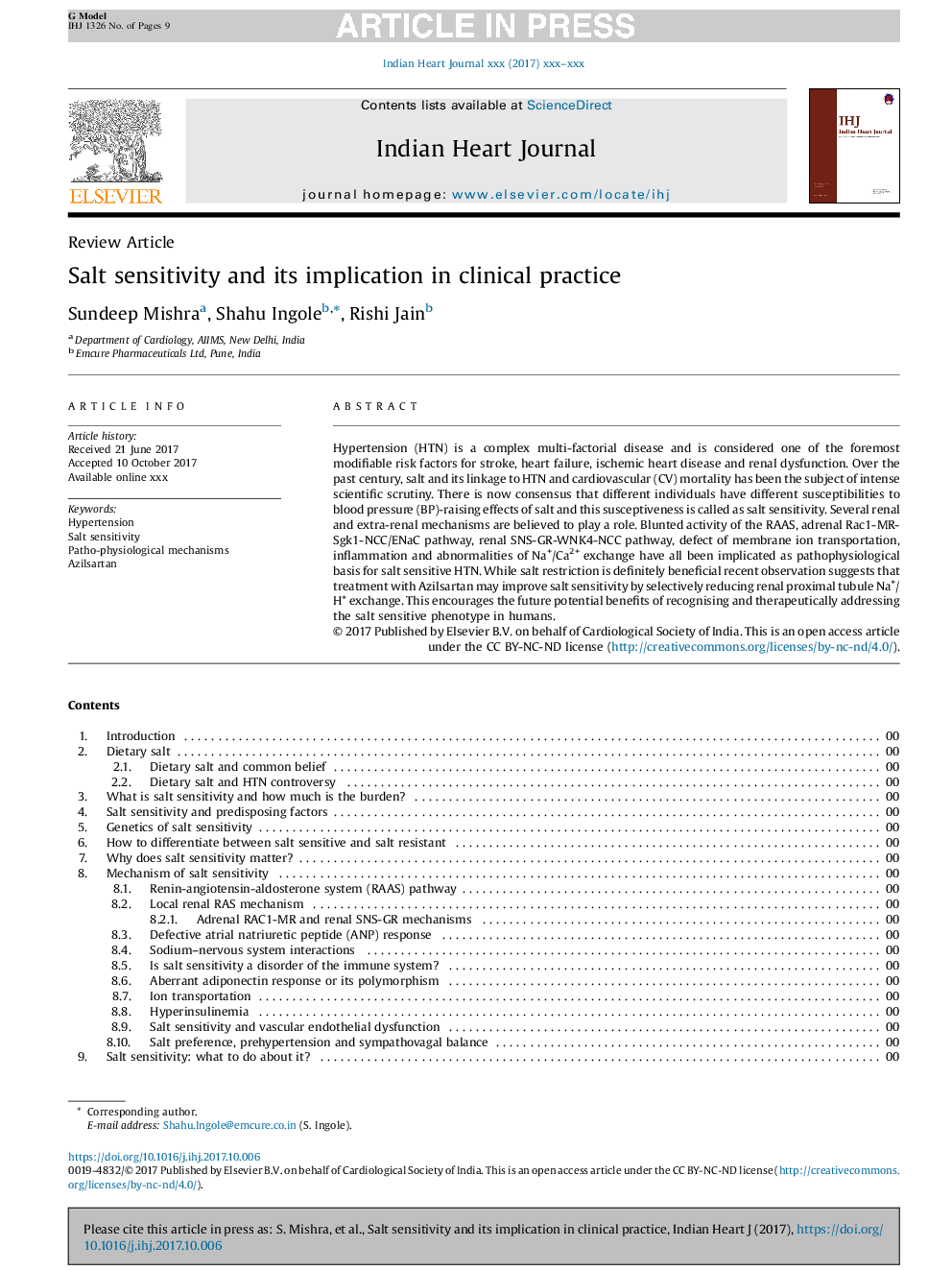| Article ID | Journal | Published Year | Pages | File Type |
|---|---|---|---|---|
| 8957126 | Indian Heart Journal | 2018 | 9 Pages |
Abstract
Hypertension (HTN) is a complex multi-factorial disease and is considered one of the foremost modifiable risk factors for stroke, heart failure, ischemic heart disease and renal dysfunction. Over the past century, salt and its linkage to HTN and cardiovascular (CV) mortality has been the subject of intense scientific scrutiny. There is now consensus that different individuals have different susceptibilities to blood pressure (BP)-raising effects of salt and this susceptiveness is called as salt sensitivity. Several renal and extra-renal mechanisms are believed to play a role. Blunted activity of the renin-angiotensin-aldosterone system (RAAS), adrenal Rac1-MR-Sgk1-NCC/ENaC pathway, renal SNS-GR-WNK4-NCC pathway, defect of membrane ion transportation, inflammation and abnormalities of Na+/Ca2+ exchange have all been implicated as pathophysiological basis for salt sensitive HTN. While salt restriction is definitely beneficial recent observation suggests that treatment with Azilsartan may improve salt sensitivity by selectively reducing renal proximal tubule Na+/H+ exchange. This encourages the future potential benefits of recognizing and therapeutically addressing the salt sensitive phenotype in humans.
Related Topics
Health Sciences
Medicine and Dentistry
Cardiology and Cardiovascular Medicine
Authors
Sundeep Mishra, Shahu Ingole, Rishi Jain,
